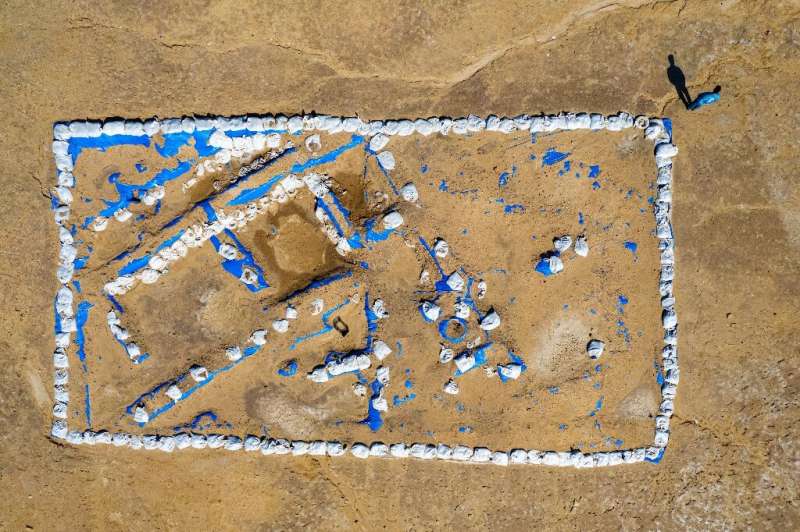
Archaeologists discover a 4,700-year-old Sumerian tavern with remnants of food and beer
Categories: Nálezy nejenom s detektorem na blízkém východě
At the archaeological site of Tell el-Hiba, a former important city-state of Lagash in the southernm Iraq, the remains of a nearly 5 000-year-old tavern have been discovered with vessels still containing food remains. Archaeologists hope their research will shed light on the lives of ordinary people in the world's first cities.
The area was nicknamed the "Garden of the Gods" in ancient times because of its high fertility. It gave rise to a number of important Sumerian cities. "Lagash was one of the most important cities of the southern Iraq region," Iraqi archaeologist Baker Azab Wali explained to AFP. "The inhabitants there depended on agriculture, cattle breeding, fishing, but also on the exchange of goods," he added.
The city was founded in the 3rd millennium BC near the confluence of the Tigris and Euphrates rivers. It was one of the first urban centres of the ancient Near East, one of the largest, if not the largest city in the world at the time. Today it is one of the largest archaeological sites in Mesopotamia. The site was first explored in the late 19th century, and archaeologists have been working here most recently since 2019, with the most recent season focusing on the urban quarter of the common non-elite inhabitants of the Early Dynastic period (2,900-2,300 BC).
Here, a joint team from the University of Pennsylvania and the University of Pisa discovered the remains of a 4,700-year-old refrigeration system, large cooking and baking ovens, benches for guardingand about 150 serving bowls, which contained fish remains, animal bones and evidence of beer drinking, which was widespread among the Sumerians.
"So we have a refrigerator, we have hundreds of vessels to serve, benches where people used to sit. Behind the refrigerator is an oven that was used to cook food," explained project director Holly Pittman. "We understand that this is a place where people - ordinary people - would have come to eat. We call it a tavern because beer was by far the most common drink for Sumerians, even more so than plain water." she added, noting that in one of the temples uncovered in the area, "a recipe for brewing beer was discovered on a cuneiform tablet."
Samples taken from the vessels are currently undergoing analysis: 'There is so much we don't know about this early period of the cities. We hope to be able to characterize the neighborhoods and the different occupations of people who lived in this great city but were not part of the elite. Most research elsewhere has focused on kings or priests. And that's all very important, but ordinary people are also important," the director concluded.
Video

The remains of a nearly 5,000-year-old inn

In addition to the vessels, archaeologists also found a large number of pottery shards

a clay tablet with fingerprints
Roman Němec
Sources: phys.org, thenationalnews.com, france24.com
The article is included in categories:



